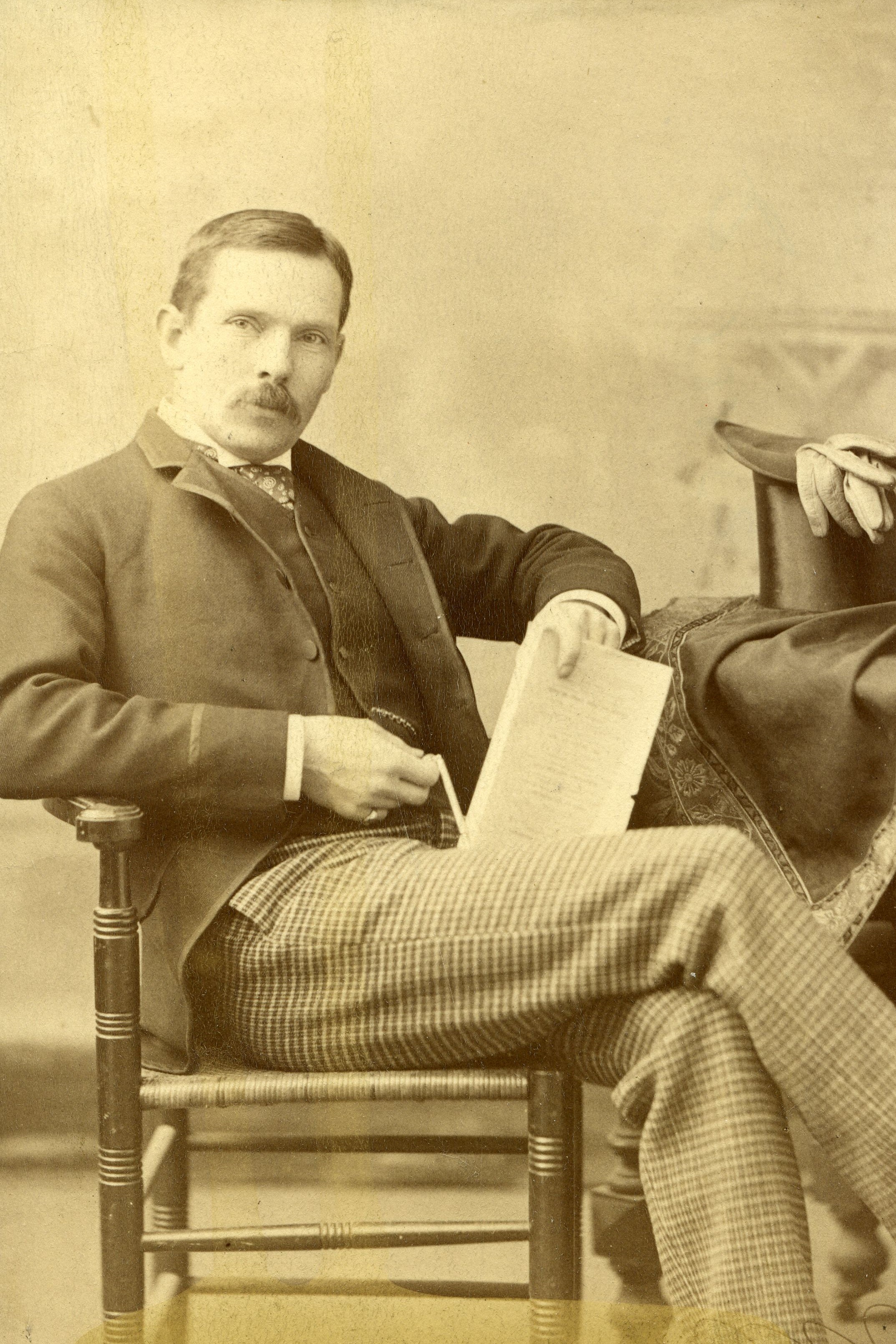Journalist/Author
Centurion, 1886–1954
Born 10 September 1855 in New York (Manhattan), New York
Died 28 May 1954 in Saugerties, New York
Buried Bigelow Homestead Gravesite , Malden-on-Hudson, New York
, Malden-on-Hudson, New York
Proposed by William E. Dodge and William G. Sumner
Elected 4 December 1886 at age thirty-one
Archivist’s Note: Son of John Bigelow; brother of John Bigelow Jr.
Proposer of:
Seconder of:
Century Memorial
Poultney Bigelow was born in New York, the son of John Bigelow, Ambassador to France under Lincoln. While his father was stationed in France, he sent Poultney to a Potsdam preparatory school; and there the boy became well acquainted with Prince Wilhelm and his younger brother, Prince Henry. When Prince Wilhelm became Emperor, Bigelow was his guest at army maneuvers, on yachting trips, and on numerous other occasions, and these two vigorous and opinionated conversationalists over the years discussed a great variety of matters.
Poultney graduated from Yale in 1879, and from the Columbia Law School in 1882; but he never practiced law. He chose rather to travel and to write of the distinguished people he met and the remote and curious places he visited; and it was undoubtedly the German Kaiser, head of a rising colonial power, who interested his friend Bigelow in the study of colonial administration in tropical countries and inspired his travels to the ends of the earth.
Bigelow thought of himself primarily as an author, but the subjects of his writings were his travels, and he was an authority on colonial administration. In truth, he was always doing just what he wanted. His father had given him a good start, and then left him enough money so that he had no financial worries; and he lived a free life with no inhibitions. He said what he wanted to say; this made him some enemies, but it also made him a lively and exciting conversationalist and opened for him the doors of the powerful, the rich, and the learned the world over. He never held a public or an educational office, but he made his impression simply by the stark impact of his amazing personality.
He died in his ninety-ninth year—the oldest member of the Century. His father had been President of the Club, and Poultney was a member for 68 years. He used to come to the monthly meetings with great regularity, wearing a black cape, a beret set rakishly on his head, and walking erect and briskly. In the evenings he wore a black velvet jacket and a loose black tie, and when he was minded to address the members in meeting he reliably lived up to his reputation for “shocking frankness.” The fact is the old man was a wonderful show—well informed, full of pith, articulate, and sophisticated.
George W. Martin
1955 Century Association Yearbook

